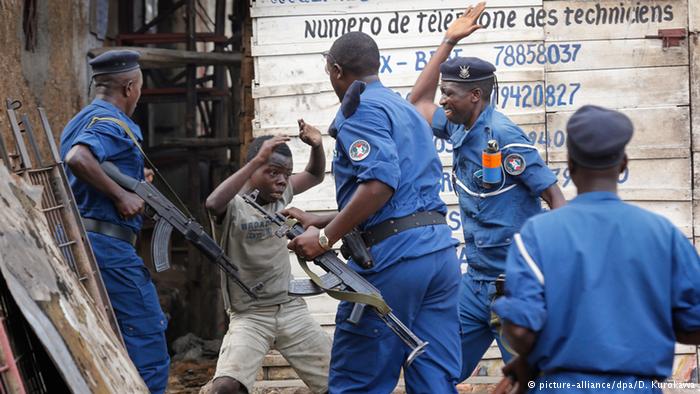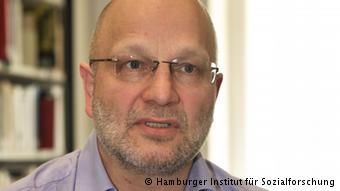Burundi
“In Burundi is not ethnic”
Looming in Burundi a civil war? The scholar of international law Gerd Hankel says no. Nevertheless, he speaks in a DW Interview against the deportation burundischer refugees from Germany.

Deutsche Welle: you have recently on behalf of lower Saxony’s constitutional court, a report on the human rights situation in Burundi created. It went to the question of whether Burundi refugees in lower Saxony the right to seek asylum. To which outcome are you?
Gerd Hankel: It was about Burundian refugees in lower Saxony, but judgments on a country level have a nationwide ripple effect. It went therefore to the question of whether Burunder in Germany either asylum or whether they are according to the Geneva Convention will be tolerated. In this specific case it was about whether a burundischer Tutsi, however, a member of a Hutu party, from the Opposition, from Germany, can be shown. After Visit in Burundi in the early summer of 2015, I have seen: In no case you can currently Burunder return – whether Hutu or Tutsi, and regardless of the party. Unless someone is an ardent supporter of President Nkurunziza. The risk that this return with the life or serious bodily injury must be paid, is very, very big!
In Burundi live mainly members of the Hutu and a Tutsi minority. In the past it has been severe conflicts between the two ethnic groups. The dispute is now a dispute between the Hutu and Tutsi?

Gerd Hankel from the Hamburg Institute for social research
In my estimation, it is still not ethnic conflict. And I also don’t think that it will, because everyone knows what is at stake. There is the fear too great, but also the innerethnische solidarity is in Burundi for a conflict between the Hutu and Tutsi too pronounced. In this regard, Burundi is actually a very solid country. And also the Opposition against Nkurunziza consists of members of the two ethnic groups: Hutu and Tutsi.
They have discussed the human rights situation in the country. How it looks currently in Burundi?
The
The situation of human rights
is in desolate Straits. There are political repressions, to the justifiable demands of the population to the Communist authorities to suppress. There is crime, there is unrest, there is a lack of prospects. Human rights abuses and arbitrariness are in Burundi are unfortunately on the agenda. The violence is mainly by the government. The authorities reacted disproportionately to violence from the population. There are the practice of enforced disappearance, there is a kind of death squads at night or in the early hours of the morning for revenge. The violence is, therefore, primarily on the part of the authorities to locate. But there are also a number of criminal elements, the of this General uncertainty, are to benefit; you may not conceal it.
Many experts talk of a
impending civil war
…
Excluded is the. However, I have at the Moment is still very great hopes in the international community, the African Union and various other local associations, such as the East African community and others. The pressure is on Burundi, the pressure on the President of the Republic is immense. He is standing with his back to the wall. I don’t think he be so stupid and the Situation still continues to escalate. Since the danger is great that he, one day before the International criminal court in The Hague found, or that he is the one with his life will pay for.
What should the international community actually do? So far in Burundi do nothing.
For example, the UN security Council, coercive measures under Chapter seven of the UN Charter decide. These are coercive measures even against the will of the Burundian authorities can be enforced. Up to now, we always
Measures decided by the consent of the Burundian governance require
how, for example, the secondment of specialists from the UN-Menschrechtskommission or if the African Union wants to know the extent to which Rwanda in the destabilization of the country is involved, and more. All this assumes that Burundi’s studies in the country permits. As a next step should now be measures against the Burundian sovereignty to be enforced.
Gerd Hankel is a lawyer in the field of international law. He is currently working for the Hamburg Institute for social research and is an expert in the Region of the Great lakes.
The Interview was conducted by Christine Harjes.
